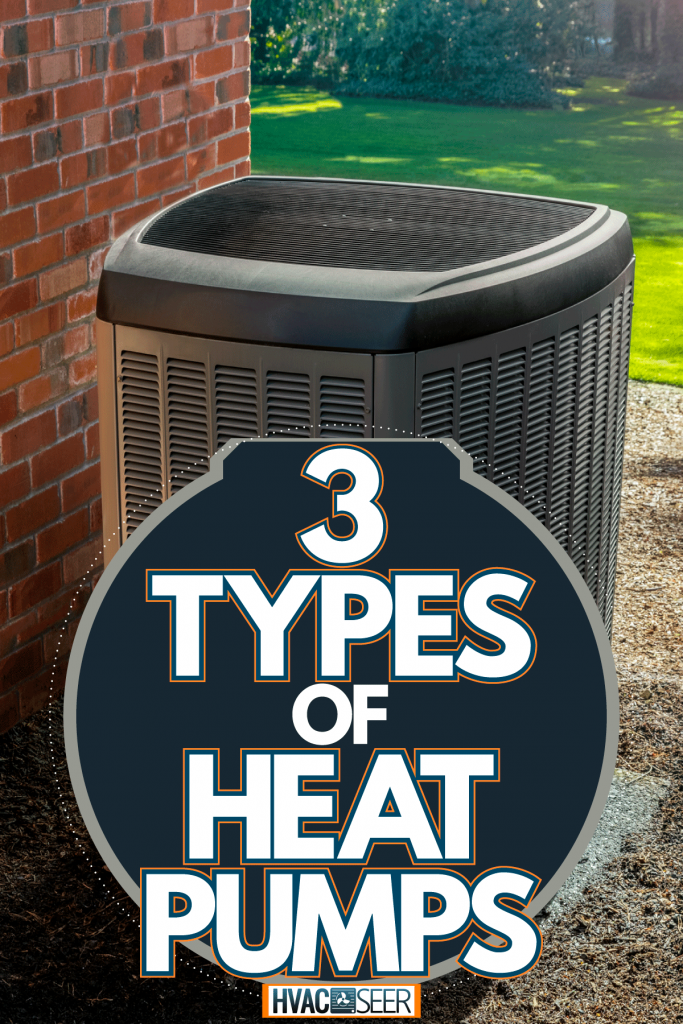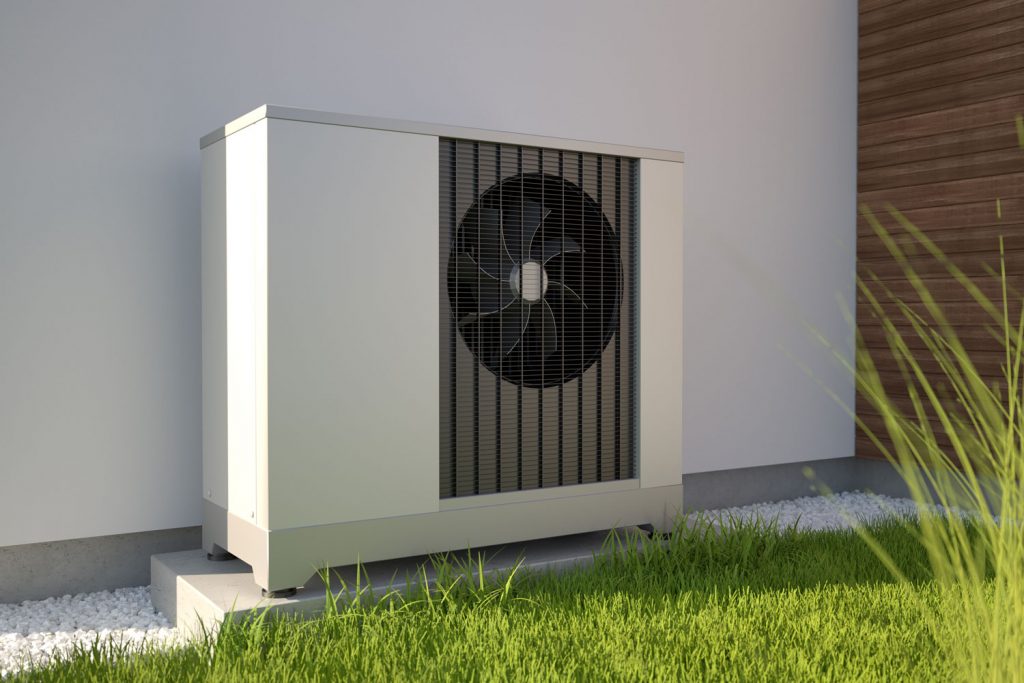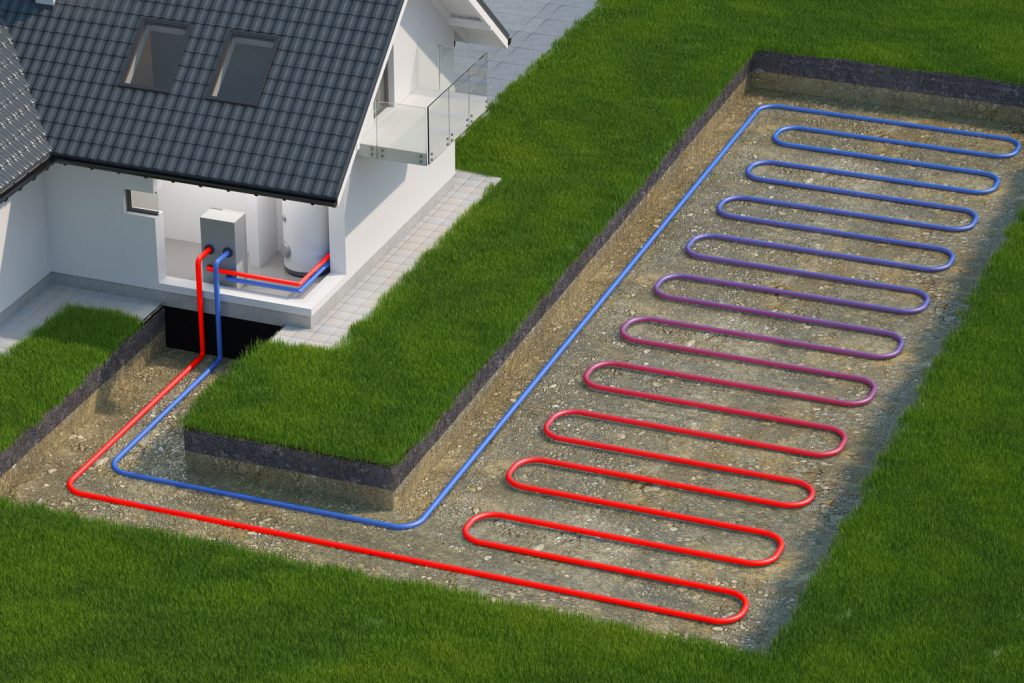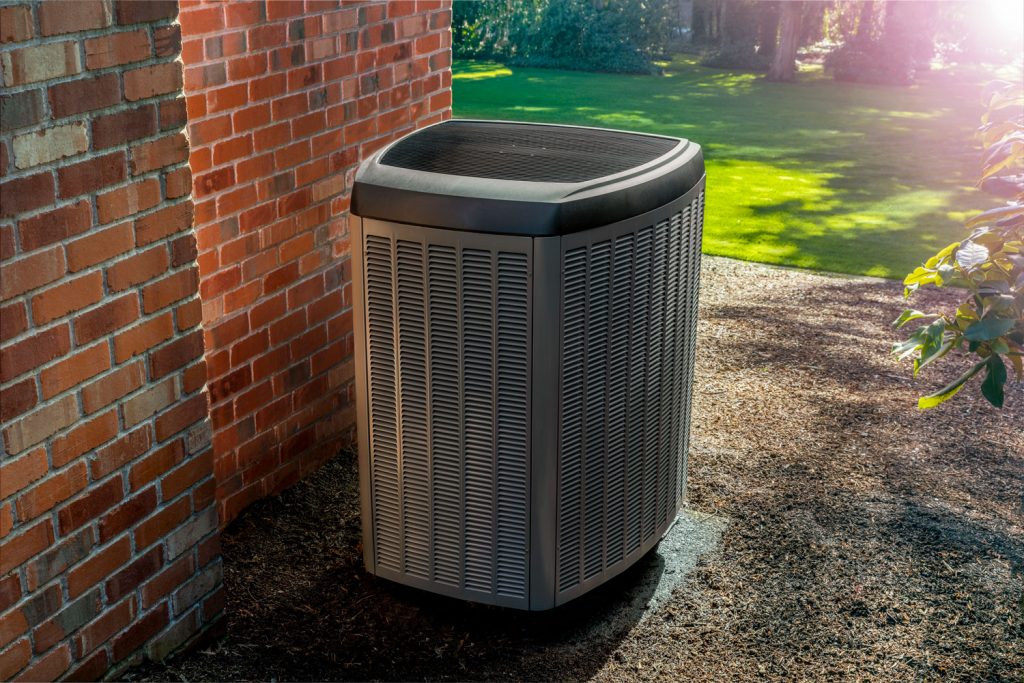Are you concerned about the best heat pump to use? You need not worry anymore because we have consulted with the experts to provide more information that can help you make the right choice.
There are three types of heat pumps and they are as follows:
- Air source heat pump
- Water source heat pump
- Ground source pump
As you plan to purchase one, let’s find out more about the various types of heat pumps. We'll also tackle which is the most popular, their lifespan, how to service them, and how much they cost.

Heat Pumps Options To Choose From
A heat pump uses electricity and works more or less like a refrigerator. It does not generate energy but pumps heat from one space and moves it to another.
During winter, the refrigerant in the heat pump absorbs heat from either the air outdoors, the water, or the ground, and transfers it to your home to warm or cool it.
No matter how cold it is outside, the heat pump can still absorb heat and warm up the inside of a home.
During summer, the heat pump pulls in air and passes it over the coils to cool it down. This air then gets pushed out to cool your home.
Let us look at each heat pump type:
1. Air Source Heat Pump

These are the most common and operate well in moderate climates and use the air outside as the medium for heat exchange.
This type of pump works by taking heat from the air outside, which is boosted by a compressor to increase the air temperature, and then transfers it into your home through the heating system.
It produces a lot of heat, and some of it can be stored in the hot water cylinder that can be used for baths, showers, and other running taps.
Despite the pump using electricity, it is efficient to use, because it uses lower electrical energy than the heat it churns out.
There are two types of air-source heat pumps, each working differently and are compatible with many types of heating systems.
Air-To-Water
These pumps take in heat from the outside air and transfer it to the wet central heating system of your home. They are suitable for the water underfloor heating system or large radiators.
Air-To-Air
These do not produce hot water but feed the warm air circulation system in your home to produce warm air. It can be used as an air-conditioner and hence works in reverse during summer to produce cool air.
Even though air source heat pumps are efficient, they have their advantages and disadvantages.
Benefits Of Air Source Heat Pumps
- They produce less carbon dioxide compared to most conventional heating systems.
- They are easier to install than their counterpart, the ground source heat pump.
- You can save on energy bills.
Drawbacks Of Air Source Heat Pumps
- Adequate space is required in your garden for the external condenser unit.
- They can be noisy.
- They are not completely carbon-free as electricity is used to operate them unless the electricity is from sources such as wind turbines or solar panels.
2. Water Source Heat Pump
Water source heat pumps use water instead of air to transfer heat into your home. They function using electricity and need sources of water like rivers, wells, boreholes, and springs.
Be ready to spend quite a high amount if you decide to install a water source heat pump. To also get the best performance, you may have to install larger radiators and underfloor heating in your home.
Factors that will help you decide if this type of pump is what you need include:
Availability Of Enough Water
If there is insufficient water, the heat pump can lower the water temperature causing the system to run inefficiently, or, worse, water will freeze. Thus, a large body of water such as a lake or river should be near your home.
The more heat you need to generate, the larger the source of water required.
Compatibility Of The Water Source Heat Pump And Your Home
As seen above, your home needs to be near a water source to facilitate the laying of pipes between the house and the source of water.
You need enough space in your home for the heat pump system, and far away from everyone in the house to avoid hearing the humming noises.
Compatibility Of The Heat Pump And The Heating System In Your Home
For maximum benefit even financially from the water heat pump, your home should be properly insulated.Also, find out from a heat pump professional, if it will work well with the heat distribution system in your house, such as radiators.
Permission From Authority
Find out from your local authority if you need permission to install one.
Types Of Water Source Heat Pumps
There are different types of water source heat pumps. Check out the details for each type below:
Closed Loop System
This pump has pipes submerged under the water that are sealed and filled with an antifreeze fluid that flows through but does not come into contact with the water. The water heats the fluid as it moves through the pipes, and goes to the pump to warm up a home.
Open Loop System
In this system, the water moves through the pump that extracts heat and then takes it back to the water source. For this, you may need permission to extract the water from the water source, and also to discharge it back to the water body.
Hybrid Heat Pumps
This is a heating source that runs alongside the water source heat pump. They are mostly suitable for older homes, where insulating the property adequately is impossible.
Solar Assisted Pumps
Solar thermal panels are added to assist the water source heat pumps.
Click here to see this solar panel on Amazon.
3. Ground Source Heat Pumps

A ground source heat pump cools or heats your home by transferring heat from the ground to your home. It uses electricity to run and works just like a boiler in a central heating system.
It does not burn fuel but uses heat from the ground. When the sun heats the earth, which is maintained by the ground even during winter, it stores the heat up to 2 meters down, at a temperature close to 10 degrees centigrade.
This system comprises three main elements: a loop buried under the ground that transports heat from the ground into a building, the heat pump, and the heat distribution system.
The pipes have an anti-freeze liquid circulating in them that absorbs heat from the ground and relays it to the heat pump.
What Type Of Heat Pump Is The Most Common And Why?
The air source heat pump is the most common especially in mild climates. As seen above, other than saving your energy bills, they are easy to install and cheaper than most other systems.
How Often Should You Get Your Heat Pump Serviced?
Just like any other mechanical system, your heat pump needs to be serviced at least once a year to detect problems early, avoid major breakdowns, prevent high repair bills, and for it to operate optimally.
How Long Does A Heat Pump Last?
A heat pump will generally last between 10 and 20 years if maintained well. On average they last around 15 years.
To maintain your pump, take care of it by ensuring that you do the following:
- Ice can accumulate on the outdoor coil, creating frost which can interfere with its proper functioning. And so, always make sure the defrost cycle is working well.
- Clean the air filters often, and replace them if needed.
- The condenser unit has fins that ought to be cleaned. frequently.
- The coils should be kept clean.
- Do not allow plants to grow within 18 inches near the unit outside.
How Much Does It Cost To Replace A Heat Pump?
The cost of a new heat pump ranges between $3,875 and $7,625 depending on the brand, the type of heat pump, and the ratings on energy efficiency.
Ground source heat pumps are the most expensive, costing up to $22,000 to install because of the excavations involved.
In Closing

There are three main types of heat pumps each using a different medium to generate heat, namely air, water, and ground heat pumps. Despite all working efficiently, the cheapest to install is the air source heat pump, while the ground source heat pump is the most expensive.
You need to critically look into each type of pump, to make an informed choice on which is the most suitable for your needs.
Before you go, check out the following posts to learn more about the best heaters for a detached garage and car camping:

